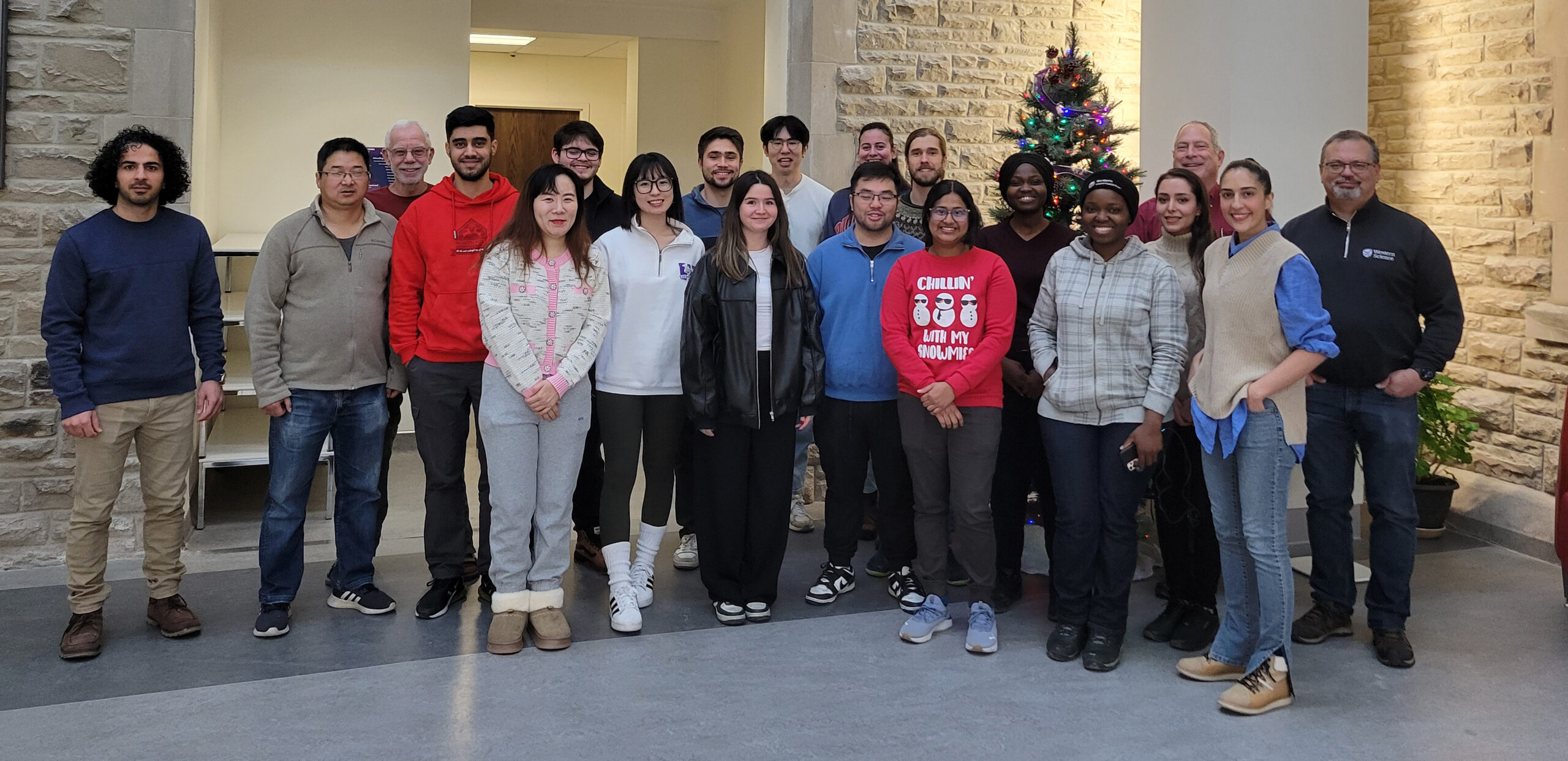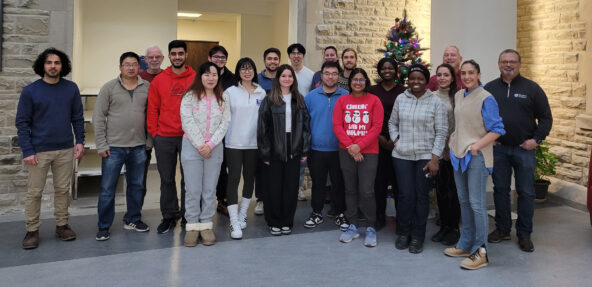Interested in Graduate Studies in Electrochemistry and Corrosion Science?
We are experts in electrochemistry and corrosion science. Established by Professor David W. Shoesmith and led by Professor James J. Noël, the group is investigating various industrial corrosion and environmental contamination problems encompassing a range of detailed electrochemical, chemical, metallurgical and transport reactions that make up complex materials and corrosion processes. Besides novel experimental techniques, the group uses computational modelling approaches from detailed deterministic process models to statistical/probabilistic and environmental performance assessment models. Our primary research areas are:
- electrochemistry and corrosion science
- performance assessment and process models
- thin films and materials degradation
- nuclear waste storage and disposal
Currently, the group’s primary research focus is waste containers and forms to find solutions for the disposal of high-level nuclear wastes using a combination of experimental and modelling approaches. Some of these approaches involve applying electrochemical techniques, often under hostile conditions such as in scorching, harsh environments.
The researchers in the lab are designing a system for the long-term storage of nuclear waste. They aim to construct barriers that remain intact long enough to allow radioactivity to decay to a non-toxic level. One approach is to encase the waste in multiple barriers to ensure that the entire system does not fail.
Research Projects
The group is working on numerous projects, some of which include:
- Copper and steel corrosion under Canadian waste disposal conditions
- Chemistry of nuclear fuel under DGR conditions
- Modelling the distribution of acidity within nuclear fuel corrosion product deposits
- Kinetics of copper corrosion in aqueous sulphide solutions
The group has solid collaborative connections on interdepartmental, University and national scales, as well as internationally.
Facilities
The group has a unique approach to investigating corrosion and material degradation processes. Use of most advanced electrochemical techniques (high precision potentiostats in conjunction with FRA, the Multichannel Microelectrode Analyzer, and Precision Resistance Measurements systems), together with state-of-the-art surface analysis techniques (XPS, Raman, TOF-SIMS spectroscopies, SEM/EDX to mention a few) allows in-depth investigation of the material degradation in an extensive range of environments.

